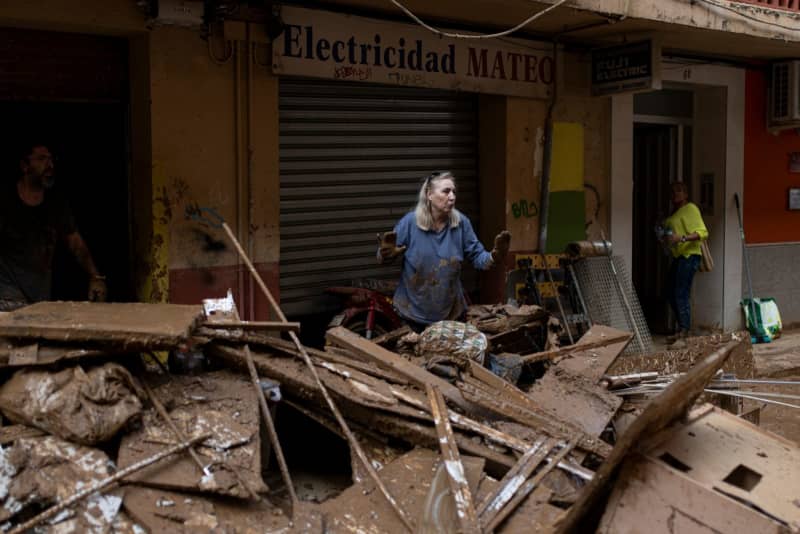Severe storms in eastern and southern Spain have resulted in a tragic death toll of 213, with rescue operations ongoing as many remain unaccounted for. The most affected region is Valencia, where emergency services are grappling with the aftermath of extreme weather conditions. The state broadcaster RTVE has reported that the search and recovery efforts have extended into their sixth day, highlighting the challenges posed by blocked roads, flood-damaged infrastructure, and the presence of debris such as stranded vehicles and household goods. An orange alert status remains active across parts of Valencia, indicating the persistence of dangerous weather, including forecasts of heavy rainfall.
The Spanish central government has responded to the evolving crisis by mobilizing additional resources. Prime Minister Pedro Sánchez announced the deployment of 5,000 soldiers and 5,000 police officers to assist with recovery efforts, supplementing the over 3,600 military personnel already stationed in the most heavily affected areas. This decision came amidst mounting criticism from local communities, who felt abandoned during the initial days of the disaster when help was scarce and essential services had essentially ground to a halt. The focus now is on restoring order and providing aid to the hardest-hit towns, where local residents have acclaimed the contributions made by volunteers joining the recovery effort.
As flooding ravaged the region, what was typically a dry riverbed transformed into a forceful torrent, inundating various villages as it surged towards the sea. This was particularly devastating for small communities that had little infrastructure to sustain such a natural disaster. Many villages continue to face challenges navigating the cleanup, as roads remain blocked and conditions are exacerbated by thick mud and other debris. Yet, progress is being made: essential services are gradually being restored, and power supplies are returning to normal levels, allowing for greater coordination in the recovery process.
The scale of damage has prompted several non-profit organizations and local groups to mobilize resources and volunteers to assist with cleanup and recovery efforts. These grassroots initiatives have been vital in reaching isolated communities and providing support where local governments were initially overwhelmed. Volunteers are working tirelessly to clear streets, remove mud, and restore some sense of normalcy in communities that have been profoundly impacted. Their dedication offers a glimmer of hope amid the devastation, showcasing the resilience and solidarity of the affected populations.
Despite these efforts, challenges remain, particularly in urban areas where the complexity of the flooding has created dangerous situations in underground and multi-storey car parks. The search for victims continues to be hampered by obscured access and uncertain conditions in many parts of Valencia. Emergency services are working around the clock to locate missing persons and provide assistance to those who have lost their homes. The dual threat of ongoing adverse weather conditions and the aftermath of intensive rainfall complicates these operations, putting additional strain on first responders.
In conclusion, Spain’s eastern and southern regions are facing significant hardships in the wake of catastrophic storms that have claimed hundreds of lives. The concerted effort from both government and volunteer sectors aims to address the immediate needs of the affected communities while navigating the complications that come with a natural disaster of this magnitude. As the country unites to confront the challenges of recovery, it reflects on the importance of preparedness and resilience in the face of climate change-driven severe weather, which is expected to become increasingly frequent in the years ahead.

